June 11, 1869: “How fine the weather is! Nothing more celestial can I conceive. How gently the winds blow! Scarce can these tranquil air-currents be called winds. They seem the very breath of Nature, whispering peace to every living thing.” – John Muir, My First Summer in the Sierra
John Muir wrote these words in his journal one hundred years to the day before I was born. He had left Wisconsin, the same place I would arrive in the world a century later, on a walking journey encompassing decades and thousands of miles. On June 11, 1869, he was one week into a summer job herding sheep in the Sierra Nevada mountains. Those peaks, forests, and meadows would become his home. He recorded his observations and reactions to the landscape with the attention of someone who is falling in love.
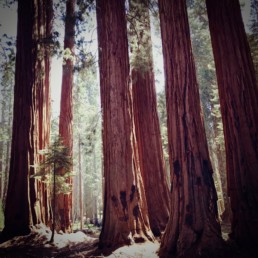
"The clearest way into the Universe is through a forest wilderness."
- John Muir
I was thrilled to discover these words on my own first visit to Yosemite and Sequoia, incomparable places that Muir fought to preserve and establish as national parks. His writing reveals nothing remarkable about the events of that particular June day – he appears to have spent it on a sun-laden hillside watching over a docile flock of sheep. He describes the river where they are camped and some wildflowers growing on the slopes. But immersed in stillness, he rejoices in an ordinary day, sensing the divine in the slightest breath of wind. While he had accepted a rather humble job because he needed the money, he was living life on his own terms – a life of curiosity and exploration and gentle attention. He may not have known it yet, but at thirty years old, he was exactly where he belonged.
"The world's big and I want to have a good look at it before it gets dark."
- John Muir
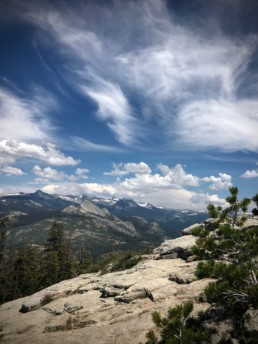
For me, this day marks the beginning of a fiftieth trip around the sun. Although it is my 49thbirthday, I have found it easier to begin anticipating the age of the coming year, especially the daunting ones that end in zero. I run my fingers along the timeline of significant people in my life; how do I remember them at forty-nine? How wise and self-assured they had appeared to me. Or, reversing my steps I recall my adolescence, the age of my children now. I have re-read the loopy handwriting in the journal of my thirteen-year-old self, the cringing and lovely significance of so many insignificant things. How did that wide-eyed girl become the middle-aged mother of teens?
This game of age and numbers helps me to both fix and loosen shifting perceptions of myself in time; to recognize my life and each life as both significant and fleeting. Muir, jotting down a few random thoughts on a hillside in 1869, did not know he still had forty-six more years to live, or how profoundly that summer would change his life and work forever. Ninety-nine years after his writing, one year before my birth, two trailblazing peacemakers had just been assassinated, war was raging, and hope itself seemed an illusion. One year later, a month after I was born, humans set foot on the moon and the world watched with rapt attention. We saw the swirling clouds of our blue-green home floating in space with stars and void; we were infinitely beautiful and infintesimally small. Over three million of us were born that year in this country alone; we grew up with the bright light of the possible – and with the sharp-edged knowledge of the long shadow cast when human beings get in the way of that light.
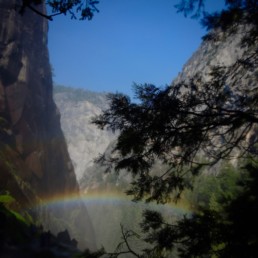
"The light shines not on us but in us."
- John Muir
Perhaps June babies are gifted with an additional sense of both possibility and paradox. June light, says Pablo Neruda, is wet with possibility. Just as our eyes begin to adjust to the long stretch of day, the solstice begins to slice nearly imperceptible slivers from dawn and dusk. The season alights on our shoulders with a butterfly’s touch; when we notice its brilliance and turn our heads, it flutters away on silent wings. Seasons and decades of my own life have faded and flown, perhaps not from a lack of attention, but from a singularity of gaze. Some goals, some journeys require this, but paying this kind of attention exacts an additional cost.
“Green was the silence, wet was the light,the month of June trembled like a butterfly.”
- Pablo Neruda
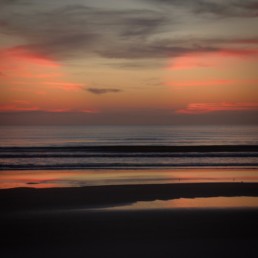
Years ago, I spent a spring afternoon driving the curving back roads of rural West Virginia with a kind and serious grey-haired doctor. On the way to visit the third or fourth holler-bound patient of the afternoon, she complained to her admiring companion that people were always telling her that she worked too much, that she should slow down. “What do they think will happen? Will time stop just because we decide to slow down?” Her eyes on the road, she was speaking to me, but reflecting on this moment thirty years later, I suspect she was really talking to herself. I was a ponytailed, nineteen-year-old college student; what did I know about the passage of time? Her words have tumbled and surfaced like a faceted stone that I discover again and again as I walk downstream. Glinting in the sun, I turn it over in my hands, wondering if she ever answered her own question. I wonder if I have.
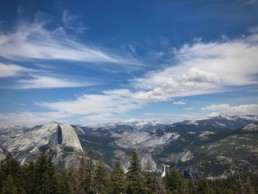
"Life seems neither long nor short, and we take no more heed to save time or make haste than do the trees and stars. This is true freedom, a good practical sort of immortality."
- John Muir
The passing of days and years cannot be slowed of course; the earth is fixed on its axis and constant in its orbit. But my attention changes my perception of that passage. The meaning I give to ordinary moments fixes them differently in my memory, and I build new layers on firmer ground. “How we spend our days is, of course, how we spend our lives,” wrote Annie Dillard at the age of forty-four, understanding the power of attention. Today, on an ordinary day in June, I turn my attention to the canopy of leaves outside my window; they are beginning to lose the ebullient green of spring and have settled into a color that is deeper, more mature. They are lovely still.
"How we spend our days is, of course, how we spend our lives."
- Annie Dillard
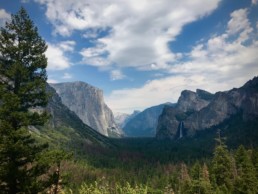
I cannot stop time, or gather back what once was, but in every day that is to come I can choose to pay attention. Perhaps, like Mary Oliver, “I don’t know exactly what a prayer is. I do know how to pay attention, how to fall down in the grass, how to be idle and blessed…” Attention can be both prayer and price; proffered gift and guarded treasure. It may expand when it wanders, diffuse as June sunlight; and coalesce when it lands, as weightless as a scallop-winged butterfly. Like Muir I can pay attention to the beautiful ordinary, find and honor my place in it, and celebrate the precious journeys of my fellow travelers. I choose attention as my prayer and gift as I begin one more abundant year of life.